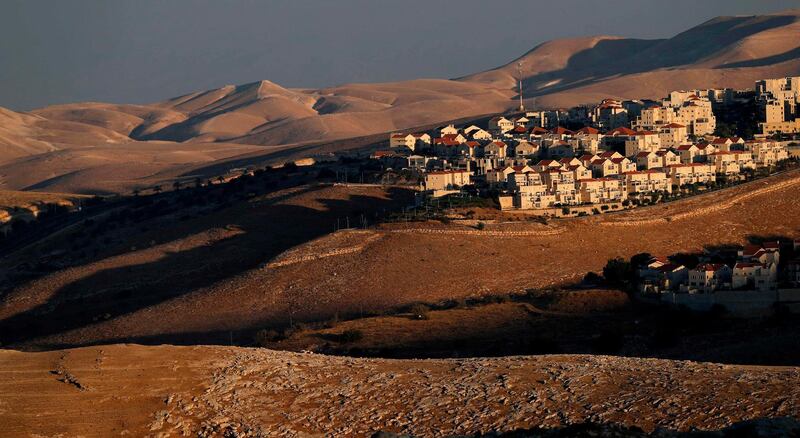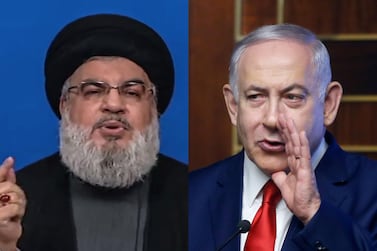Dozens of former Israeli security officials have called on the country's hard-right government to not annex the occupied West Bank, as Prime Minister Benjamin Netanyahu has hinted he might do before next month's repeat election.
In a letter sent to the government on Tuesday, 25 former senior defence figures said that the move would endanger Israel’s security, rather than bolster it.
“Any unilateral annexation of territory or extension of sovereignty to the West Bank will put Israel’s security and safety along with the well-being of its citizens at risk,” the letter said.
The signees of the letter included former leaders of the Mossad spy agency, the Shin Bet, Israel's domestic security service and three former advisers to Mr Netanyahu.
The call comes after the longest-serving leader in Israeli history said he would seek to extend Israeli “sovereignty” over parts of the occupied West Bank.
In May, more Israeli security officials said Mr Netanyahu should make a U-turn on any annexation move, saying that it would lead to the collapse of the Palestinian Authority, which operates limited self-rule in the occupied West Bank and co-operates with Israeli security forces, and embolden extremist elements.
But it was a call that was met with derision by the Israeli leader and members of his right-wing Likud party, many who believe that the occupied West Bank is part of the historic homeland of the Jewish people.
The Israeli premier used biblical names for the occupied West Bank, writing on Twitter that “swaths of land in Judea and Samaria are not just a guarantee of Israel’s security — they are also our patrimony”.
Israel has controlled the territory for more than 50 years, occupying it after the Arab-Israeli War in 1967, and has slowly developed a network of Jewish outposts across the territory that holds more than 400,000 Israelis live next to almost three million Palestinians.
Much of the world considers the settlements to be illegal under international law. The United States, long opposed to settlement building, has under President Donald Trump remained quiet as Mr Netanyahu’s government has approved a slate of new settlement plans.
Palestinians view Israel’s continued settlement plans as an attempt to stymie any hope of a sovereign Palestinian state that sits side-by-side with Israel. The majority position of the international community is that of a two-state solution, with a Palestinian entity existing next to modern-day Israel.
The Palestinians seek East Jerusalem, which Israel also occupies, as the capital of any future state.







